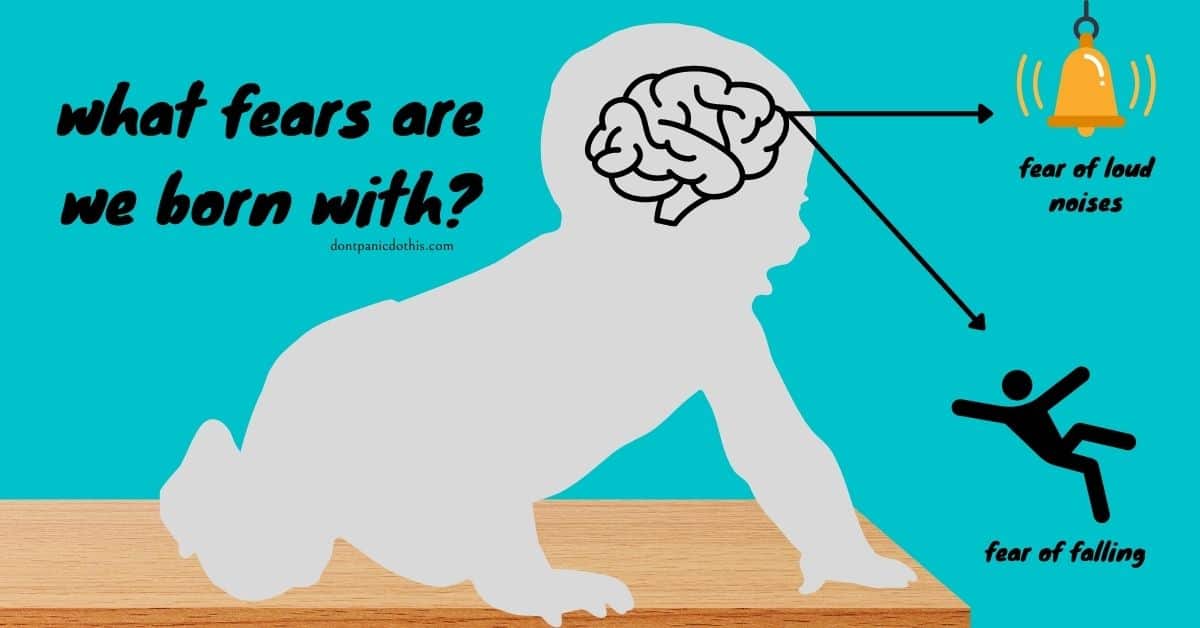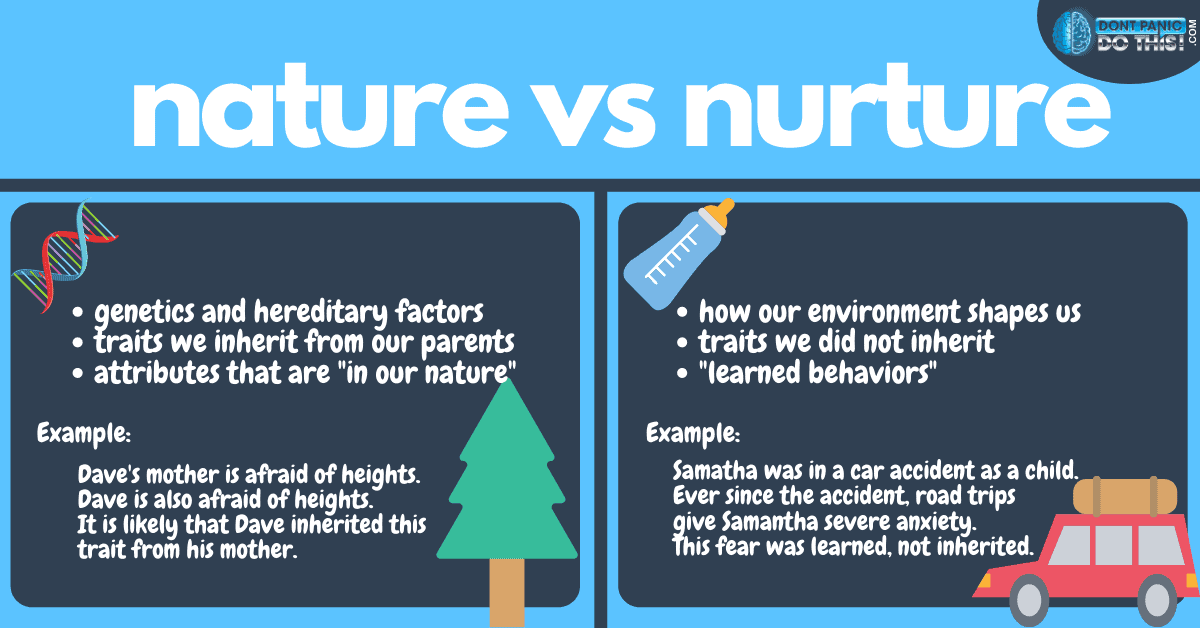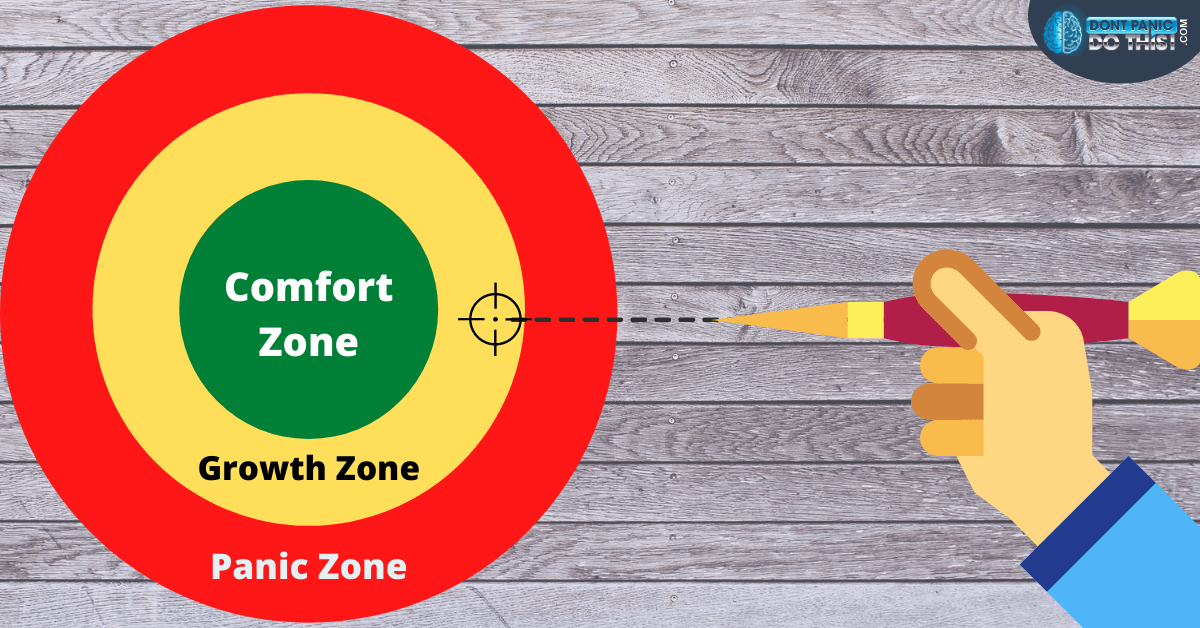What fears are we born with? Many fears are acquired, or learned, throughout our lives, but we are not born with a completely clean slate. A few innate fears come hardwired in us the moment we are born. So, what do babies fear as soon as they’re born, without any prior experience?
The 2 Fears We Are Born With
The fears we are born with include:
- The Fear of Falling
- The Fear of Loud Noises
If, for some reason beyond my understanding or control, you need to scare a baby… those two innate fears are your best bet. But hopefully, you’re here for a more wholesome and scientific purpose. So, let’s dive in.

The Fear of Falling
In the famous 1960 “Visual Cliff” study on depth perception, 6- to 14-month infants and some young animals were placed in front of a plexiglass “cliff” and enticed by their trusted caregiver to crawl across. Being able to perceive and fear the drop, most subjects would not cross the plexiglass. This inborn fear of falling helps keep infants alive at an age where such a drop could prove fatal. [1]
The Fear of Loud Noises
The other innate fear we are born with is the fear of loud noises. From birth, we’re wired with an acoustic startle reflex (ASR) that has us reflexively react to startling sounds. This primal wiring is essential for us to quickly react to and protect ourselves from physical harm. In the infamous “Little Albert” study on classical conditioning, loud noise was used to teach the subject to fear the very sight of a white rat. [2]
Innate Fears vs Learned Fears
The nature vs. nurture debate is among the oldest and most iconic debates in psychology.
That is: are we the product of our genes, or our environment?
Spoiler alert for those who skipped Psychology 101: Our psychological makeup is a combination of both internal and external factors (both nature and nurture). It is neither biological factors alone, nor life experiences alone, that make us who we are. It is both.
Like our personality, our fears also develop as a unique combination of our genetics and experiences. There are some innate fears we’re born with, some fears that will spontaneously emerge with age, and some fears we will learn.

Fears that Emerge with Age
I know what you’re thinking: Well, what about the fear of spiders, snakes, or public speaking? Surely such fears originate in our genes and don’t require a traumatic event to develop?
Right you are! There are many fears that we naturally develop over time, but we’re not quite born with these fears. Some fears we’re genetically predisposed to don’t manifest themselves until later in our lives. This is often due to hormonal changes that occur as we age.
Take the fear of public speaking, for example. This extremely common fear develops spontaneously in many people. Students who had no problem reading their 5th-grade book report may become panicky and anxious giving a similar presentation in high school. This is because, at this life stage, the fear of being publicly humiliated or rejected is far more relevant.
In short, new fears can arise over time due to relevancy and maturity. An infant’s brain has limited processing power. The fear of falling and the fear of loud noises are the survival instincts evolution has deemed most relevant for infants. An infant wouldn’t fear public speaking yet because, well, bombing at an open mic night just isn’t a relevant threat for a baby.
Overcoming Learned or Innate Fears
Uncomfortable as it may be, gradual exposure to our learned or innate fears can help us overcome just about any of them. This involves slowly stepping outside our comfort zone when possible until our fears are extinguished over time.
If a specific fear or phobia has you experiencing anxiety or panic attacks, check out my book, Don't Panic, Do This! 100+ Ways to Stop Panic Attacks and Anxiety to learn a ton of useful and easy anxiety coping mechanisms!

Sources
[1] Gibson, E. J., & Walk, R. D. (1960). The “Visual Cliff.” Scientific American, 202(4), 64–71.

